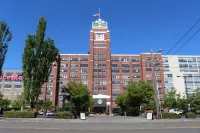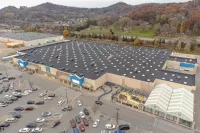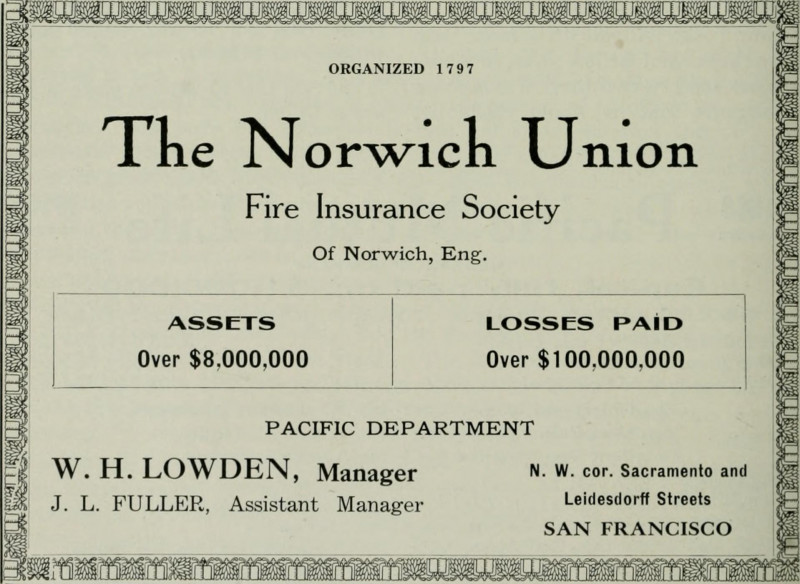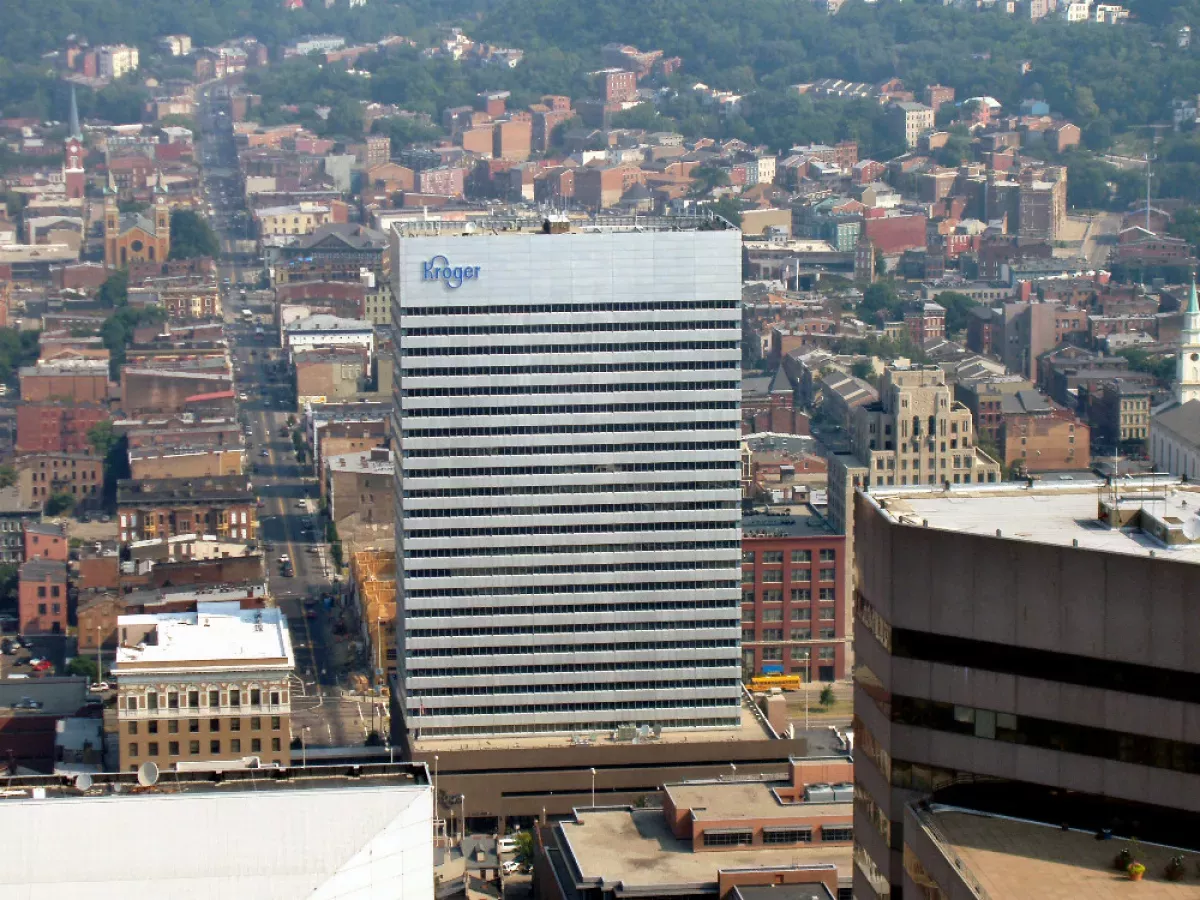Kroger is an American retail corporation that runs supermarkets and multi-department stores across the United States. It is one of the largest supermarket chains in the U.S., known for its extensive network of stores and a wide variety of products, including groceries, pharmacy services, and general merchandise.
1902: Kroger Grocery and Baking Company Incorporation
In 1902, Kroger Grocery and Baking Company was incorporated and had grown to forty stores, selling $1.75 million worth of merchandise each year. Kroger also became the first grocery chain to have its own bakery.
1916: Began using self-service shopping
In 1916, Kroger company began using self-service shopping, a departure from the previous system where clerks retrieved items for customers.
1928: Kroger's presence in Western Pennsylvania
From 1928, Kroger had a presence in the Western Pennsylvania region, encompassing Pittsburgh and surrounding areas.
1929: Rumors of merger with Safeway
In 1929, there were rumors that Safeway would merge with Kroger.
1932: Pilot project grocery store in Indianapolis
In 1932, Kroger tested a pilot project after it opened a grocery store in Indianapolis that was surrounded by a 75-car parking space, allowing the company to determine the close relationship between parking facilities and gross sales.
1955: Expansion into new markets through acquisitions
Beginning in 1955, Kroger expanded into new markets by acquiring supermarket chains. In May, it entered the Houston, Texas, market by acquiring the Houston-based 26-store chain Henke & Pillot. In June, Kroger acquired the Krambo Food Stores, Inc. of Appleton, Wisconsin. In July, it purchased Child's Food Stores, Inc. of Jacksonville, Texas, which operated 25 supermarkets in Texas, Arkansas, and Louisiana.
January 1956: Acquisition of Big Chain Stores, Inc.
In January 1956, Kroger bought out Big Chain Stores, Inc., a chain of seven stores based in Shreveport, Louisiana, which was later combined with the Childs group.
September 1957: Sale of Wichita store division
In September 1957, Kroger sold its Wichita, Kansas, store division, consisting of 16 stores, to J. S. Dillon and Sons Stores Company.
October 1963: Acquisition of Market Basket
In October 1963, Kroger acquired the 56-store chain Market Basket, giving them a presence in the Southern California market.
1966: Adoption of the Kroger banner
In 1966, the Big Chain Stores, Inc. and Childs groups adopted the Kroger banner.
1970: Exit from the Minneapolis-Saint Paul area
In 1970, Kroger exited the Minneapolis-Saint Paul area and sold 16 stores to Quality Foods, which rebranded the stores to Piggly Wiggly.
1972: Opened ultra-modern dairy plant in Indianapolis
In 1972, Kroger built an ultra-modern dairy plant named Crossroad Farms Dairy in Indianapolis, which was considered the largest dairy plant in the world at the time.
1972: Exit from Milwaukee
In 1972, Kroger exited the Milwaukee market, selling a few stores to Jewel.
1977: Entered the Charlotte market
In 1977, Kroger entered the Charlotte market and expanded rapidly throughout the 1980s when it bought some stores from BI-LO.
1978: Anti-trust lawsuit filed
In 1978, sixteen retail members of Parkview Markets Inc. filed an anti-trust lawsuit against Kroger.
1980: Entered the San Antonio market
In 1980, Kroger entered the competitive San Antonio, Texas, market.
1980: Sale of Michigan stores to Hamady Brothers
In 1980, Kroger sold several other Michigan stores to another Flint-based chain, Hamady Brothers.
1981: Closure of stores around Flint, Michigan
In 1981, Kroger closed several stores around Flint, Michigan, which were converted by local businessman Al Kessel to a new chain called Kessel Food Markets.
1982: Withdrawal from California market
By 1982, Kroger withdrew from the California market after failing to make significant headway.
1982: Sale of Market Basket chain
In 1982, Kroger sold the 65-store Market Basket chain it had operated for several years in southern California.
1983: Labor Strike
In 1983, Kroger faced a protracted labor strike due to worsening labor-management relations during the economic recession.
1983: Acquisition of Dillon Companies grocery chain
In 1983, The Kroger Company acquired Dillon Companies grocery chain in Kansas along with its subsidiaries and the convenience store chain Kwik Shop.
1984: Exit from Pittsburgh, Cleveland, Akron, and St. Louis markets
From 1984 to 1986, Kroger exited the Pittsburgh, Cleveland, Akron, and St. Louis markets. The company cited that higher wages for union employees made it unable to compete.
1984: Withdrawal from Western Pennsylvania market
In 1984, during a labor strike, Kroger withdrew all of its stores from the Western Pennsylvania market, selling them to Wetterau.
1984: Economic Recession and Effects on Kroger's Operations
Until 1984 Kroger had a number of stores in the Western Pennsylvania region, encompassing Pittsburgh and surrounding areas. The U.S. began experiencing a severe economic recession, which undercut demand for the higher-end products and services offered by Kroger.
1986: Exit from Pittsburgh, Cleveland, Akron, and St. Louis markets
From 1984 to 1986, Kroger exited the Pittsburgh, Cleveland, Akron, and St. Louis markets. The company cited that higher wages for union employees made it unable to compete.
1986: Left the St. Louis market
In 1986, Kroger exited the St. Louis market due to unprofitable stores, with most stores being bought by National, Schnucks, and Shop 'n Save.
1988: Pulled out of the Charlotte market
In 1988, Kroger announced it was pulling out of the Charlotte market and put its stores up for sale. Ahold bought Kroger's remaining stores in the Charlotte area and converted them to BI-LO.
1988: Exit from the Florida market
In 1988, Kroger exited the Florida market after operating stores under the SupeRx and Florida Choice banners and sold all of its stores.
1989: Boys Markets Acquired
In 1989, Boys Markets was acquired by the Yucaipa Companies, after the Market Basket chain was reverted to the Boys Markets branding.
1989: Withdrawal from Chattanooga, Tennessee
In 1989, Kroger also experienced a similar withdrawal from Chattanooga, Tennessee.
June 15, 1993: Closure of San Antonio stores
On June 15, 1993, Kroger announced the closure of its 15 area stores in San Antonio, Texas.
1994: Acquisition of AppleTree Markets stores
In 1994, Kroger strengthened its presence in the Houston market by acquiring several stores from AppleTree Markets, which were former Safeway stores.
1994: Red Food bought by BI-LO
In 1994, the grocery chain Red Food, which had bought many of Kroger's stores, was in turn bought by BI-LO.
1998: Merger with Fred Meyer
In 1998, Kroger merged with Fred Meyer, the then fifth-largest grocery company, along with its subsidiaries, Ralphs, QFC, and Smith's.
1999: Repurchase of Kessel Food Markets stores
In 1999, Kroger bought most of the Kessel Food Markets stores back and began reverting them.
1999: Store swap with Harris Teeter
In 1999, Kroger swapped all ten of its Greensboro, North Carolina-area stores to Harris Teeter for 11 of that company's stores in central and western Virginia.
2000: Entry into the Richmond, Virginia, market
In 2000, Kroger entered the Richmond, Virginia, market by purchasing Hannaford stores and also entered the Hampton Roads market.
2001: Acquisition of Baker's Supermarkets
In 2001, Kroger acquired Baker's Supermarkets from Fleming Companies, Inc.
2002: Acquisition of Albertsons stores in Houston
In early 2002, Kroger acquired many of the Albertsons stores after Albertsons exited the San Antonio and Houston markets.
2004: Acquisition of Thriftway stores in Cincinnati
In 2004, Kroger bought most of the old Thriftway stores in Cincinnati, Ohio, when Winn-Dixie left the area. These stores were reopened as Kroger stores.
2006: Kroger Withdraws Hawaii Expansion Plans
In 2006, Kroger had planned to expand to Hawaii, even submitting registration, but ultimately withdrew those plans.
2007: Kroger Acquires Scott's Food & Pharmacy and Farmer Jack Locations
In 2007, Kroger acquired Scott's Food & Pharmacy from SuperValu Inc. Also in 2007, Kroger acquired 20 former Michigan Farmer Jack locations from A&P when A&P exited the Michigan Market.
2008: Kroger Partners with Murray's Cheese
In 2008, Kroger began a partnership with Murray's Cheese of New York City. Murray's Cheese counters within Kroger stores sell various artisanal cheeses from around the world.
April 2013: Kroger Announces Changes to Employee Health Insurance
In April 2013, Kroger announced that spouses of unionized workers would no longer be covered by the company's insurance plan, citing the Patient Protection and Affordable Care Act. This change affected roughly 11,000 workers in Indiana. At the same time, Kroger announced that full-time employees would maintain their health insurance benefits. Also in 2013, Kroger was noted for carrying 17 out of 22 Red List species.
July 9, 2013: Kroger to Acquire Harris Teeter
On July 9, 2013, Kroger announced it would acquire Charlotte-based Harris Teeter for $2.5 billion, assuming $100 million in debt. This acquisition of Harris Teeter's click-and-collect program marked Kroger's return to the Charlotte market after 25 years and entry into Asheville, North Carolina.
February 2015: Kroger Registers as a New Business in Hawaii
In February 2015, Kroger registered as a new business in the state of Hawaii, setting the stage for its entry into the Hawaiian market.
March 3, 2015: Kroger Announces Entry into Hawaii
On March 3, 2015, Kroger announced its intention to enter the Hawaii market, having registered with the state in February 2015. Kroger will face competition from several major retailers already operating in Hawaii.
April 2015: 84.51° Created as Data Science Subsidiary
In April 2015, Kroger created 84.51°, a wholly owned subsidiary engaged in data science and consumer insights, after purchasing the remaining half of Dunnhumby USA from Tesco.
May 1, 2015: Kroger Acquires Hiller's Market Chain
On May 1, 2015, Kroger announced the acquisition of the seven-store Hiller's Market chain in Southeast Michigan. Kroger would operate all but one of these stores under the Kroger banner.
June 2015: Kroger Eliminates Harris Teeter Brand in Nashville
In June 2015, Kroger eliminated the Harris Teeter brand from the Nashville, Tennessee market, where its growth had been stunted by aggressive competition. Two Harris Teeter stores were closed, and three were converted to the Kroger brand.
November 11, 2015: Kroger and Roundy's Announce Merger
On November 11, 2015, Kroger and Roundy's announced a definitive merger, bringing Roundy's chain's 166 primarily Wisconsin-based chains under Kroger ownership for $800 million. The acquisition brought Kroger back to Wisconsin after 43 years, retaining the Roundy's, Pick 'n Save, Mariano's, Metro Market, and Copps names.
April 2016: Kroger Invests in Lucky's Market
In April 2016, Kroger announced that it had made a "meaningful investment" in Lucky's Market, an organic foods supermarket chain.
2016: Kroger Sales Reach $110 Billion
In 2016, Kroger's sales reached $110 billion, contributing to its recognition as the second-largest grocer in the nation in December 2019.
February 7, 2017: Kroger Purchases Murray's Cheese
On February 7, 2017, it was announced that Kroger Co. had purchased Murray's Cheese.
February 2017: Kroger Announces Store Closures in Louisville Amid Protests
In February 2017, Kroger faced community protests after announcing the closing of two smaller-sized stores in the Louisville area, despite high store volumes and population densities.
February 2017: Kroger Ends Senior Citizen Discount
As of February 2017, Kroger discontinued its discount for senior citizens aged 59 and up.
May 1, 2017: Kroger and University of Kentucky Announce Naming Rights Agreement
On May 1, 2017, Kroger, the University of Kentucky, and JMI Sports announced a 12-year, $1.85 million per year campus marketing agreement, renaming Commonwealth Stadium to Kroger Field. The University of Kentucky is the first school in the Southeastern Conference to enter into a corporate partnership for football stadium naming rights.
June 1, 2017: Kroger Opens Second "Fresh Eats MKT" Store
On June 1, 2017, Kroger opened their second Fresh Eats store, furthering the "small test" of this new concept.
2017: MasterCard became the network for Kroger's 1-2-3 REWARDS credit card
In 2017, MasterCard became the network for Kroger's newly branded 1-2-3 REWARDS credit card issued by U.S. Bank.
2017: First Kroger Marketplace Store in Alabama Opens
In 2017, the first Kroger Marketplace store in Alabama opened in Huntsville, Alabama.
February 2018: Kroger to Sell Convenience Stores to EG Group
In February 2018, Kroger announced that it would be selling its 762 convenience stores to EG Group for $2.15 billion. Kroger retained just over 20 convenience stores, while supermarket fuel centers were not included in the sale.
April 10, 2018: Kroger Announces Plans to Hire 11,000 New Employees
On April 10, 2018, Kroger announced plans to hire an estimated 11,000 new employees, including approximately 2,000 managerial positions, bringing the total number of employees close to half a million.
April 20, 2018: Kroger Completes Sale of Convenience Stores to EG Group
On April 20, 2018, the sale of Kroger's 762 convenience stores to EG Group was finalized.
May 17, 2018: Kroger Partners with Ocado to Improve E-commerce
On May 17, 2018, Kroger announced a partnership with Ocado, a UK-based online supermarket, to improve Kroger's ecommerce program with online ordering, automated fulfillment, and home delivery via new automated fulfillment centers.
May 24, 2018: Kroger to Acquire Home Chef
On May 24, 2018, Kroger announced they were acquiring Home Chef for $200 million, with an additional $500 million in incentives based on performance targets.
June 13, 2018: Kroger to Transition Kroger-Branded Stores in Raleigh-Durham
On June 13, 2018, Kroger Mid-Atlantic announced that the Kroger branding would be leaving the Raleigh-Durham area. All 14 Kroger-branded stores were to transition, with eight becoming Harris Teeter, one a Crunch Fitness, and one a Food Lion. The future of the remaining four stores was unclear.
June 2018: Testing Driverless Cars for Grocery Delivery
In June 2018, Kroger announced that it would begin testing driverless cars for grocery delivery, partnering with the autonomous car company Nuro.
July 2018: Kroger Backs Off Net 90 Payment Plan to Produce Industry
In July 2018, Kroger officials retreated from a Net 90 payment plan to the produce industry.
October 2018: Kroger Announces Online Wine Delivery to 14 States
In October 2018, Kroger announced online wine delivery to 14 states in partnership with DRINKS, offering customers assorted wines in 6-bottle or 12-bottle packs.
December 4, 2018: Kroger Announces Deal to Sell Food Inside Walgreens
On December 4, 2018, Kroger announced a deal to sell food inside Walgreens drugstores under the "Kroger Express" brand, offering meal kits and other meal solutions.
2018: Sold convenience stores to EG Group
In 2018, Kroger sold 782 convenience stores to EG Group.
2018: Simple Truth Reached $2 Billion in Annual Sales
In 2018, Kroger's Simple Truth brand, their flagship natural and organic brand, reached $2 billion in annual sales.
2018: Logo Used at Convenience Stores Sold to EG Group
In 2018, the logo Kroger introduced in 2006 was still used at the convenience stores that were sold to EG Group.
August 2019: Kroger Begins Charging Fees for Cash Back
In August 2019, Kroger began charging customers between $0.50 and $3.50 for receiving cash back when making purchases with debit cards. The fees were first test marketed in March at Kansas area Dillons stores.
November 2019: Kroger Unveils Updated Logo and Expands Online Wine Delivery
In November 2019, Kroger unveiled an updated logo with the 'Fresh For Everyone' tagline and 'Krojis.' Kroger also expanded its online wine delivery program into Arizona in partnership with DRINKS, making the service available in 19 states plus Washington D.C.
December 2019: Kroger Named Second-Largest Grocer in the Nation
In December 2019, Kroger was named the second-largest grocer in the nation, with $110 billion in sales in 2016. Also in December, USA Today listed Kroger and its brands as the top supermarket in several states.
2019: Kroger Increases Self-Checkout Usage
In 2019, Kroger began gradually shifting towards creating more self-checkout lanes and smartphone apps due to increased self-checkout usage.
March 2020: Kroger Implements "Hero Pay" for Essential Workers
From the end of March 2020, Kroger provided a raise of US$2 an hour to essential workers.
March 2020: Kroger Discontinues "Fresh Eats MKT" Concept
In March 2020, Kroger discontinued the "Fresh Eats MKT" concept.
May 2020: Kroger Ends "Hero Pay" for Essential Workers
In May 2020, Kroger ended the "hero pay" raise of US$2 an hour for essential workers.
2020: Kroger's Online Sales Grow Significantly
In 2020, Kroger's online sales grew by 116%, reaching over $10 billion annually.
January 2021: Long Beach City Council Mandates Hazard Pay
In January 2021, the Long Beach City Council in California passed an ordinance mandating a US$4 per hour hazard pay increase for essential workers in large grocery stores like Kroger.
February 13, 2021: PBS NewsHour Reports on Kroger's Pandemic Hazard Pay
According to a PBS NewsHour February 13, 2021 broadcast, during the pandemic, Kroger provided their essential workers with a hazard pay, which the company called "hero pay."
April 2021: Kroger Closes Seattle QFC Stores Due to Hazard Pay Law
In April 2021, Kroger closed two Seattle QFC stores, citing the city's COVID-related hazard pay law as the reason.
April 2021: Kroger Opens First Fulfillment Center with Ocado
In April 2021, Kroger opened the first of its automated fulfillment centers, located in Monroe, Ohio, as part of its partnership with Ocado.
October 14, 2022: Kroger announced a merger with Albertsons
On October 14, 2022, Kroger announced a merger with Albertsons in a deal worth $24.6 billion. The merger aimed to combine both companies into one entity but divesting some stores to C&S Wholesale Grocers to secure regulatory approval.
2022: Kroger to acquire Albertsons
In 2022, Kroger announced it would acquire Safeway's parent company, Albertsons.
September 2023: Kroger Operates Eight Fulfillment Centers with Ocado
As of September 2023, Kroger operates eight fulfillment centers in conjunction with Ocado, with the latest "spoke" facility being opened in Johnstown, Colorado. Locations include Ohio, Florida, Georgia, Wisconsin, Texas, Michigan, Colorado and Maryland.
2023: Kroger Investing in Automation
By 2023, Kroger had been investing millions of dollars to replace cashier stations with automation.
July 9, 2024: Kroger released the list of stores for divestment
On July 9, 2024, Kroger released a complete list of 579 stores that would be divested to address antitrust concerns from the Federal Trade Commission. The Dallas market was most affected, with 26 Albertsons locations, including the Tom Thumb chain and six Market Street locations, slated for sale. Following this announcement, the United Food and Commercial Workers voiced their continued opposition to the merger, stating Kroger's announcement "changes nothing".
December 2024: Merger with Albertsons blocked
In December 2024, a federal judge blocked the merger between Kroger and Albertsons, leading Albertsons to back out of the deal.
2024: Value of Bernard Kroger's initial investment
In 2024, Bernard Kroger's initial investment of $372 in 1883 is equivalent to $12,554.
2024: Ranked on Fortune 500 and dividend stock
In 2024, Kroger is ranked No. 25 on the Fortune 500 and is frequently listed as a good dividend stock for investors.
Mentioned in this timeline

Starbucks is an American multinational coffeehouse chain established in Seattle...

Walmart Inc is a multinational retail corporation operating hypermarkets discount...
The Affordable Care Act ACA also known as Obamacare is...
California is a U S state on the Pacific Coast...

The lion Panthera leo is a large cat species native...
Pennsylvania is a U S state located in the Mid-Atlantic...
Trending

29 seconds ago Josh Duhamel Opens Up About His Divorce with Fergie, Expresses No Regrets.
44 seconds ago Texas Lottery: Winning Numbers Announced for Powerball, Lotto Texas, and Daily 4.
1 hour ago Montgomery County Schools reverses electric bus plan; considers snow day calendar changes.

1 hour ago Discovering Nuria Brancaccio: Rising Star in Women's Tennis

3 hours ago Zurich Insurance to Acquire Beazley in a Landmark $11 Billion Deal

2 hours ago Chwali?ska and Kawa Shine in Antalya: Polish Tennis Players Achieve Notable Wins
Popular

Jesse Jackson is an American civil rights activist politician and...

Hillary Diane Rodham Clinton is a prominent American politician lawyer...

Jim Carrey is a Canadian-American actor and comedian celebrated for...

XXXTentacion born Jahseh Dwayne Ricardo Onfroy was a controversial yet...

Michael Joseph Jackson the King of Pop was a highly...

Kashyap Pramod Patel is an American lawyer who became the...
